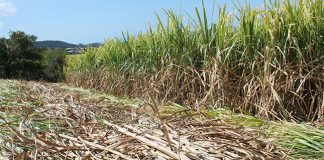In launching what he termed ‘Operation Vumbulula’ (Uncover), MEC for Agriculture, Rural Development and Environmental Affairs Dr Meshack Radebe paid a surprise visit to Inchanga and discovered broken and abandoned tractors, ploughs and fertiliser spreaders. He also discovered stocks of dumped fertiliser and seed. The rusting tractors and farm implements, some of which were unused, were bought as part of the department’s mechanisation programme and were intended for small-scale farmers in the province.
“We suspect it’s the tip of the iceberg, as there are over 70 extension offices around the province,” said KZN DAEA spokesperson Jeffrey Zikhali, adding that the department received other reports “of a lot of equipment decaying and rotting.” The MEC has already reported the matter to the Auditor-General, KZN Premier Zweli Mkhize and the provincial Cabinet and received the go-ahead to start a forensic investigation into supply chain management and service delivery.
Brought to book
“The MEC is working hard to make sure that those who are responsible are brought to book,” said Zikhali. “If time permits, he intends visiting every district office and taking abandoned equipment back to Cedara so that every tractor and piece of equipment can be tracked.” Radebe also planned to investigate irregular expenditure linked to R140 million set aside to purchase fertiliser and the nearly R40 million used to level sites for building piggeries and chicken coops around the province. “The MEC is flabbergasted that so much was spent on just levelling sites and nothing was built,” said Zikhali. Kwanalu president Brian Aitken said he has heard of other reports of dumped seed.
Not unexpected
“We are horrified at this waste of money. The mechanisation programme is an embarrassment,” said Aitken. But, he added, it was “not unexpected when one considers the lack of skills, capacity and credibility within the department.” If the department
wanted to ‘sort out’ agriculture, it had to involve commercial farmers on the ground, said Aitken.
“We’re relieved that something is finally being done about uncovering this wastage, but until we start working together, agriculture is going to flounder. “It’s pretty scary because, for us to survive as farmers, we need successful black commercial farmers. This drive for subsistence farmers is not going to prove anything,” said Aiken.











